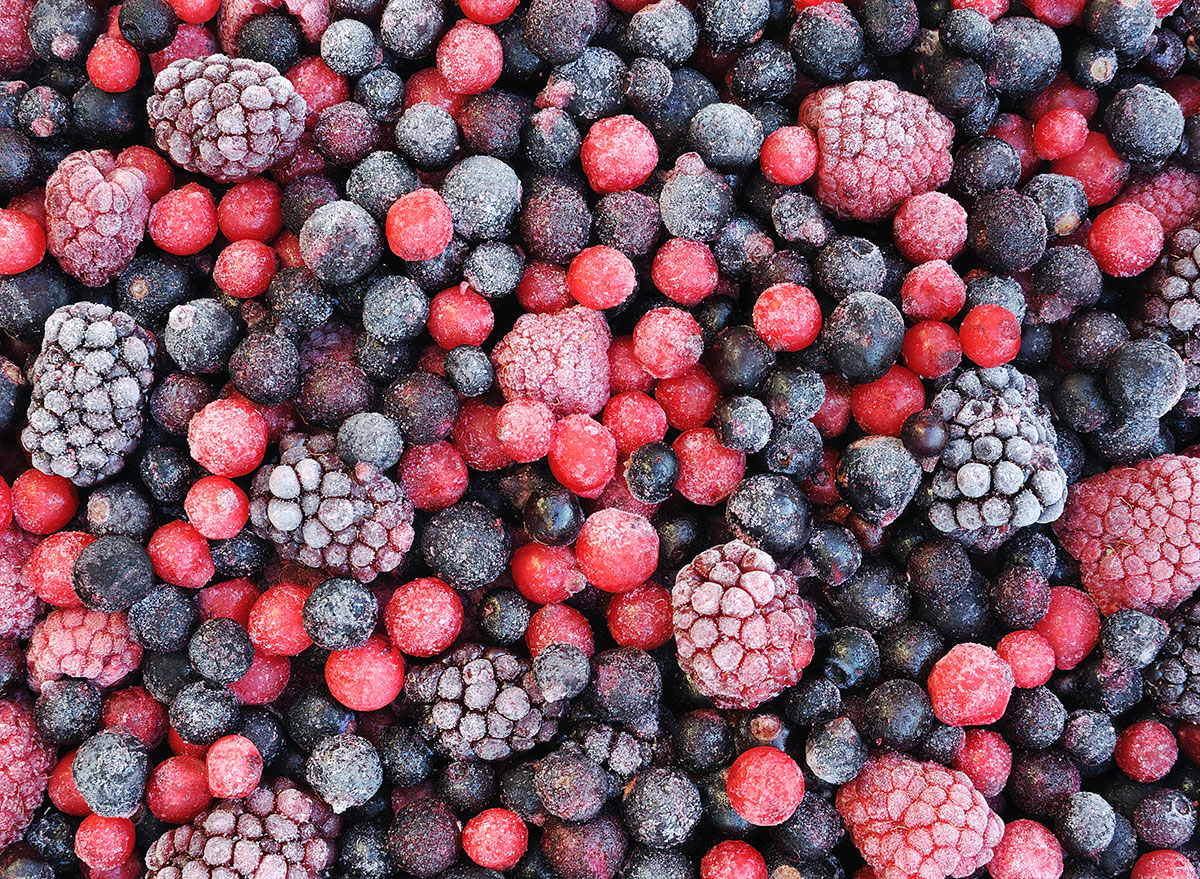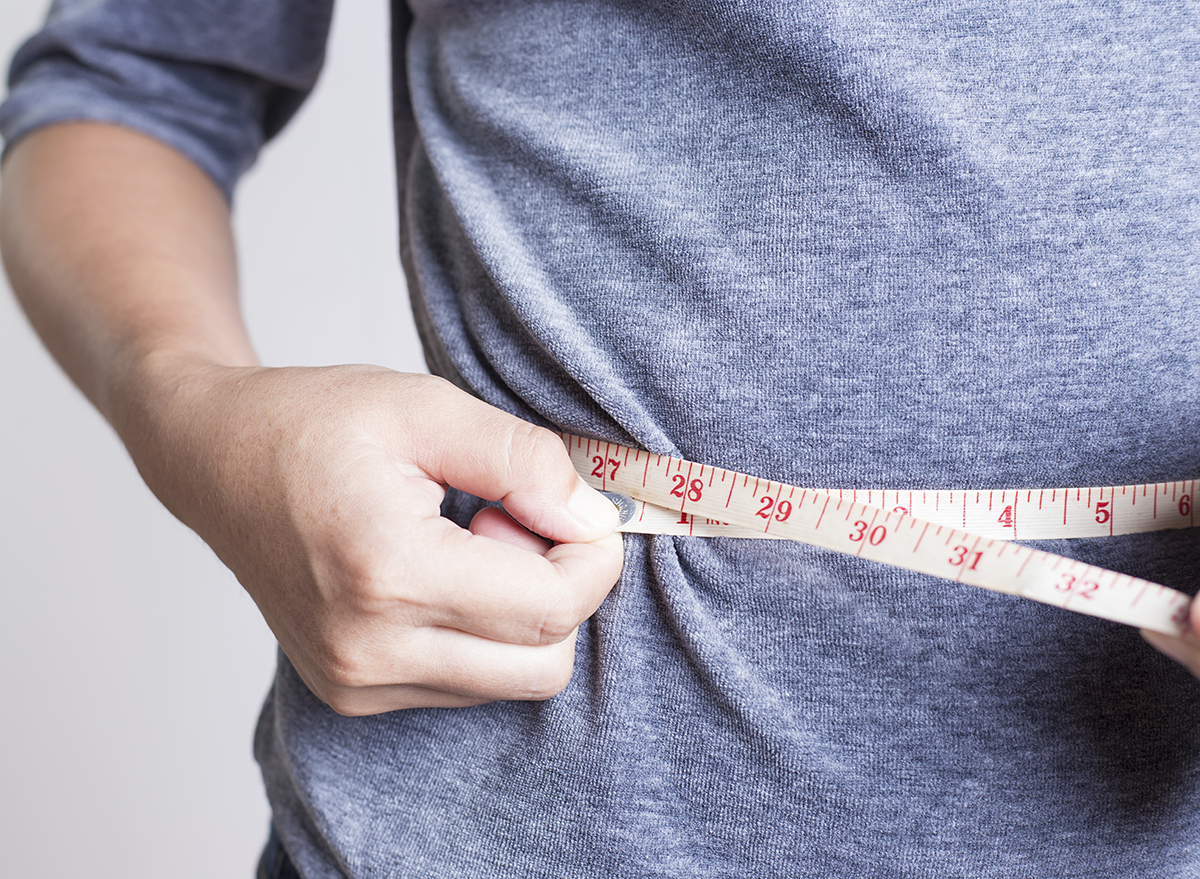5 Ways Fruit Can Help You Lose Weight

Eat more of nature’s dessert, and you’ll do your body a world of good. Fruits are excellent sources of essential vitamins and minerals, inflammation-fighting antioxidants, and many are among some of the best high-fiber foods. Eating a diet high in fruits (and vegetables) can reduce your risk of developing heart disease, cancer, diabetes, and age-related functional decline, according to a review published in The American Journal of Clinical Nutrition. Eating fruit can also help you lose weight!
Low in calories and high in satiating fiber, fruit makes the perfect weight-loss weapon.
But you have to make sure you eat enough fruits to reap any of their benefits—and many of us aren’t. The 2015–2020 Dietary Guidelines for Americans recommends eating 2 cups of fruit per day; however, USDA food consumption surveys find that the average American falls far short—consuming less than 1 cup of fruit daily. Only 1 in 4 Americans eats the recommended amount of fruit per day.
Read on to discover how eating fruit can help you lose weight. But before you start, keep this in mind: while the simple act of increasing your fruit intake will benefit your overall health—including regulating your weight—eating more fruit without changing the rest of your diet won’t be enough to help you lose weight, according to Purdue University researchers. You’ll also want to pair your increased fruit intake with these The 22 Best Tips To Start Losing Weight, According to Dietitians for the most effective diet plan.
Just focusing on it can help you keep weight off

Instead of thinking about what you can’t have on a diet, it may be just as effective to think about what you can have if you want to lose weight. And fruit is one of those things you can have. A Journal of the Academy of Nutrition and Dietetics asked dieters who had lost weight and were trying to keep it off to consume more than 5 servings of fruit and vegetables per day (in addition to walking 10,000 steps and keeping track of your weight). The researchers found that the dieters were not only able to keep the weight off that they had just lost over the course of 12 months, but they were also able to reduce it even more. What are you waiting for? Leave that fruit bowl on the counter!
Their antioxidants will provide an added boost

Antioxidants are bioactive compounds that scavenge up cell-damaging free radicals that cause inflammation and the rapid evolution of chronic diseases. Although coffee is the top source of antioxidants in our diets, fruits are some of the richest sources. These compounds are important for both protecting your health and promoting weight loss. A Nutrition study found that following a high fruit diet for 8 weeks not only helped women lose weight, but it also significantly decreased LDL (“bad”) cholesterol levels and oxidative stress.
It’s important that you’re getting a variety of fruits in your diet to get the most out of their antioxidant benefits. Researchers have found that fruits and vegetables’ potent antioxidant and anticancer activities are mostly attributed to the fact that the polyphenols—bioactive compounds in plants—work together to produce a noticeable health benefit. That’s why it’s important to eat a variety of foods and to get your vitamins and minerals from whole foods—not supplements.
Eating fruit can help you maintain or reach a healthy BMI

A Nutrition study found that the amount of fruit you eat is directly linked to your BMI, or body mass index. The more fruit you eat, the more weight you lose, and the lower your BMI. And that was true regardless of the macronutrient composition of the rest of the participants’ diets, meaning that someone who ate fruit on a low-fat diet had the same opportunity to lose weight as someone who was following a high-protein diet. The researchers believe that the link between fruit and weight loss could extend beyond the effects of fruit intake on satiation, reduced calorie intake, and lower consumption of high-calorie foods. They hypothesize that a certain combination of nutrients contained in fruit may affect your metabolic rate in a way other food items do not. If you want to keep your metabolism humming, eat more fruit and less of the 11 Worst Foods for Your Metabolism.
The fiber will keep you full

Many fruits are good to excellent sources of fiber. Decades of research supports the fact that increasing your fiber intake or following a high-fiber diet can help you lose weight or maintain a healthy weight. That’s because fiber is satiating — it keeps you full! When researchers put participants who had colon cancer precursors on a high-fiber, high-fruit-and-vegetable, low-fat diet, the participants lost an additional 2 to 5 pounds over the course of four years compared to those who didn’t make any dietary changes.
Fruit might encourage you to take your time with your meals

The physical act of chewing fruit may help you lose weight. When researchers put participants on a low-energy-density diet—which was defined by a low fat content and high levels of fresh fruit, vegetables, whole grains, and dried beans—they ate more slowly, were less likely to eat until unpleasantly full, and consumed fewer calories compared to those who followed a high-energy-dense diet.








